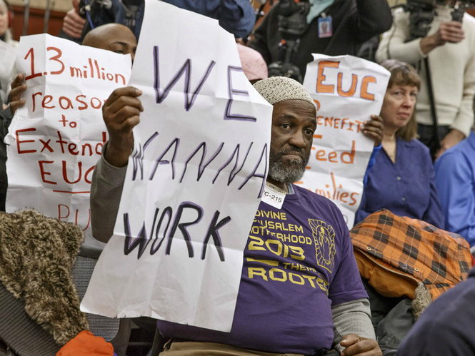The economy created only 113,000 jobs in January, up from 75,000 in December. Colder than normal weather was a factor, but that does not explain two consecutive months of poor performance. These sad results are consistent with a broadly underperforming economy.
Construction, manufacturing, and hospitality registered gains, while retail trade, financial services, and education and health services disappointed.
In 2013, GDP growth slipped to 1.9 percent, thanks to the $200 billion January tax increase and sequestration spending cuts, but this year should be somewhat better. President Obama is not likely to get from Congress the higher taxes he proposes and jobs creation is likely to be in the range of 200,000 per month.
Economists expect the first quarter to be slow, as global currency and equity markets adjust to the Federal Reserve phasing down purchases of longer-term Treasury and mortgage-backed securities; however, the fundamentals under the U.S. and global expansion are firming, even if those are not exciting.
Global growth will rebalance a bit from Asia to the Atlantic community as Europe begins shaking off sovereign debt problems. Conditions in Europe and the United States will broaden the foundations for global growth, and reduce vulnerabilities to dodgy banking practices and economic nationalism in places like China, Japan, and Latin America.
Currently, the U.S. economy is weighed down by a colder than normal winter, and the market inefficiencies and drag on household finances imposed by the rollout of ObamaCare. However, more robust household formation and balance sheets will give the residential construction and auto sectors a boost as warmer weather arrives. 2014 will be a good year for pickup trucks so ubiquitous on construction sites and employment in industries supporting housing and motor vehicles.
In January, unemployment fell a notch to 6.6 percent, largely because 91,000 additional working-age adults chose not to seek employment. Alarming numbers of prime working-age adults remain stuck in low-wage, part-time jobs with few benefits.
Factoring in adults on the sidelines who say they would seek employment if conditions were better and part-timers desiring full-time work, the jobless rate rises to 12.7 percent and that likely understates the scope of the problem. As many working-age men have become despondent, and displaced spouses in formerly two-earner families have become reconciled to permanent unemployment.
The economy needs to add about 360,000 jobs each month to push unemployment down to about 6 percent and provide employment for those frustrated adults. That would require GDP growth in the range of 4 to 5 percent.
Over the last four and one-half years, the pace of GDP growth has been a paltry 2.4 percent–about the same as during the Bush expansion. Ronald Reagan inherited a much tougher unemployment situation than either the two most recent occupants of the Oval Office, yet he managed 4.8 percent growth and created many more jobs.
Technology and globalization are most frequently blamed for the listless jobs market but nothing is particularly novel about the current era. Disruptive technologies began when the arrow replaced the stone, and international commerce has been on the upswing long before Marco Polo.
In all times, the quality of government policy, business culture, and individual initiative decide which societies most effectively exploit new technologies and broader commercial opportunities, and accomplish prosperity and productive employment for the wider citizenry.
The defining difference between the recent two disappointing economic recoveries and the strong record of the 1980s has been the predisposition of presidents from both parties to champion politically-expedient remedies–bailouts and entitlements that steal money from promising R&D, public infrastructure, and private investment to bolster inefficient hospitals, abusive financial houses, and decadent universities.
When the best incomes are to be earned gaming regulators, dodging prosecutors, and fielding gladiators for Saturday spectacles, no wonder the economy doesn’t grow, and one out of every six adult men is jobless and likely to stay that way.
Decadence begets decay.
Peter Morici is an economist and professor at the Smith School of Business, University of Maryland, and widely published columnist. He tweets @pmorici1

COMMENTS
Please let us know if you're having issues with commenting.